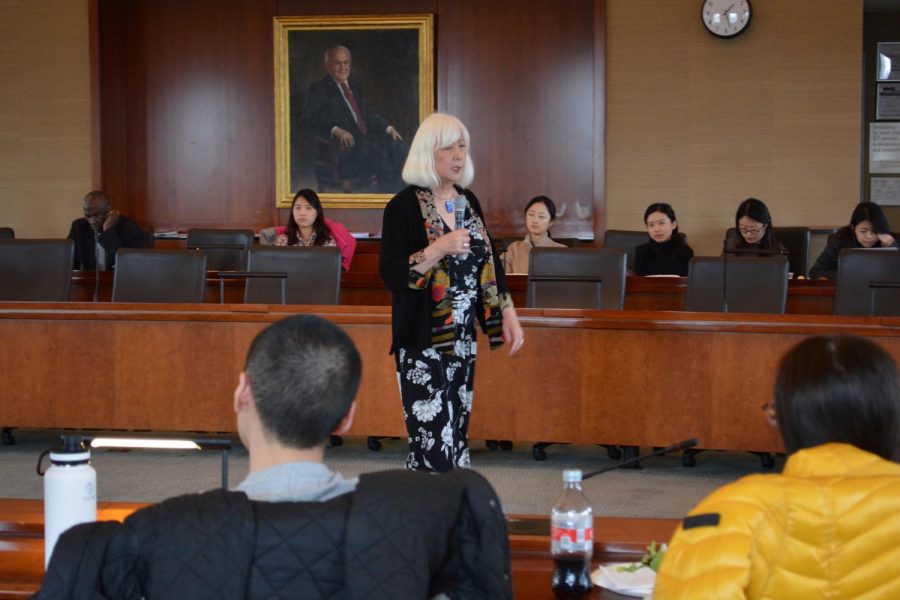Japanese-American transgender lawyer Mia Yamamoto spoke to a room full of aspiring lawyers about President Trump’s 2019 ban on transgender individuals’ military service at NYU Law on Monday, Feb. 10.
Mia Yamamoto was born in Poston Relocation Camp, a Japanese Internment Camp in Arizona, established during WWII. She later served in the Vietnam War and today works as a criminal defense attorney based in Los Angeles. Yamamoto was awarded the National Defense Service Medal and was a co-founder of the Asian Pacific American Bar Association of Southern California. Yamamoto came out as a transgender woman at age 60 in 2003.
Transgender people were banned from working in the military until the Pentagon changed their policy in 2016, allowing them to serve openly. In 2017, President Trump reversed this decision and, after facing legal challenges, the ban went into effect in April 2019.
“The trans ban on the military is part of a larger process and policy of exclusion, oppression and marginalization by the government to appeal to their base,” Yamamoto said.
The new policy bars people with gender dysphoria, a feeling of distress some transgender individuals struggle with related to their identity that conflicts with their assigned-at-birth-sex. The policy does not affect those who were already serving in the military before the ban came into effect.
Yamamoto believes this problem goes beyond the LGBTQ+ community alone.
“The transgender ban issue is important, not just because of the [rights] of transgender people, but because it’s the tip of the iceberg,” Yamamoto said. “[Transgender people] are not the only ones that have been targeted. It is also the people of color, women, LGBTQ people in general and Muslims.”
Yamamoto sees governmental efforts to exclude transgender people as a means to erase the contributions the LGBTQ+ community has made to society.
“We [transgender people] have something to offer the country,” Yamamoto said. “We believe in this country as much as anybody else.”
She urged aspiring lawyers to take up unpopular causes and participate in minority movements. Ryann An, a corporate law student at NYU, commented on the event.
“I’m interested in public interest law, and I think [the event] was a good opportunity for minority groups to speak up,”An said.
Mufei Li, who also studies law at NYU, shared that she was grateful for the opportunity to learn about transgender people and their challenges.
“I’m not an LGBTQ+ community member, but it was interesting to know how transgender lawyers think,” Li said.
Email Shelly Lin at [email protected].


























































































































































